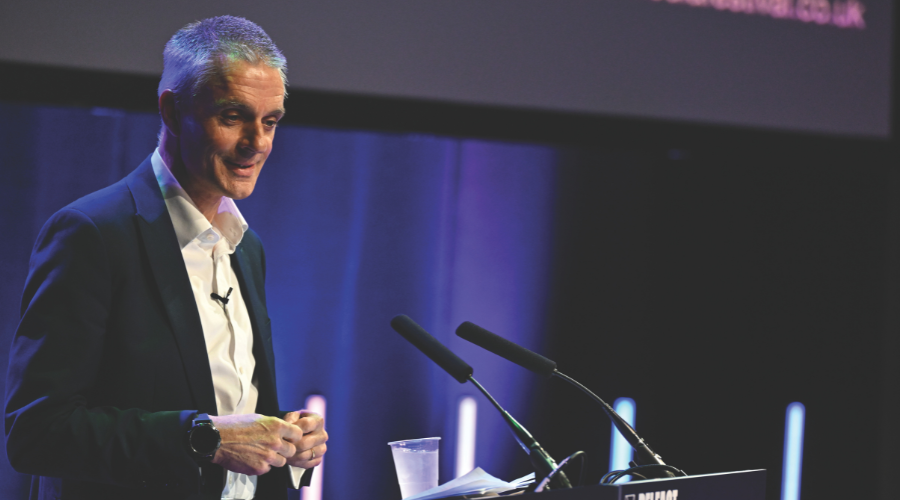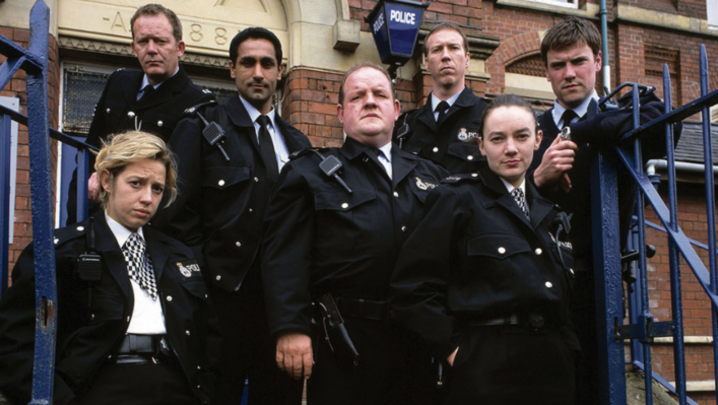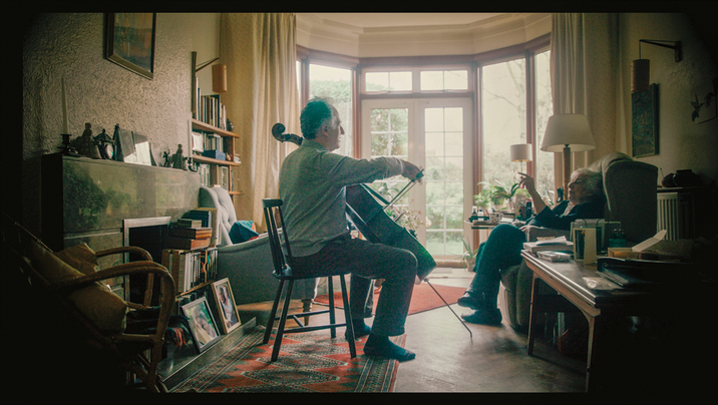On the BBC’s centenary in Northern Ireland, its Director-General saluted recent success. Matthew Bell reports
“Home-grown story-telling – that’s something we do… like no other.” BBC Director-General Tim Davie made the claim while giving the Dan Gilbert Memorial Lecture at the Belfast Media Festival in mid-November.
One hundred years after the first BBC broadcast from Northern Ireland, Davie was launching the BBC Economic Impact Report for Northern Ireland. It revealed that the corporation invested £112m in the nation during 2023/24.
The Belfast police drama Blue Lights has boosted the Northern Irish economy by £20m across its first two series, while other shows, including the cosy crime drama Hope Street (£17.5m) and Mastermind and its celebrity offshoot (£6m), have also brought noteworthy investment.
“These things make you laugh, cry… but we’ve also got a really hard-edged economic story [to tell],” said Davie. The report reveals that more than 80% of the production budget for Blue Lights was spent within Northern Ireland, and that 87% of the almost 250 crew were local.
“The journey began with our groundbreaking partnership with Northern Ireland Screen… it was the first of its kind across the UK,” recalled Davie.
The BBC’s 10-year partnership with the screen agency has produced hit dramas such as Line of Duty, Bloodlands and The Fall, as well as Blue Lights. Recent unscripted successes include Once Upon a Time in Northern Ireland (made by Keo Films and Walk on Air) and The Fast and the Farmer-ish (Alleycats TV).
“Authentic portrayal is what audiences value most”
Northern Ireland has also been used as a location for many dramas, including Showtrial, World on Fire and The Woman in the Wall. Davie pointed to “significant growth… [of] nearly 20% between 2019 and 2022” in the nation’s screen industries. “Today, the sector accounts for 4,000 jobs and over 450 businesses. Politicians at the moment, as you may have noticed, are desperately shopping around for those sectors that deliver this kind of growth and these kind of opportunities.”
In the past, most BBC programmes in Northern Ireland were made in-house; now local independent producers are dominant. Davie said: “Last year, indies supplied 100% of our drama and comedy… and nearly 60% of our factual programming.” He continued: “We have successfully moved on from the image of Northern Ireland as simply a low-cost production centre.
“Big, multi-series BBC dramas like Blue Lights and others have played a key role in helping to drive and embed that change; and, critically, returning series like Hope Street are vital in both showcasing the skills on offer here and providing career pathways for individuals to develop.
“Shows like these are telling the unique and authentic stories of this place and its people.
“Authentic portrayal, not tokenism, is what our audiences want and value most, but also it has huge international appeal, helping to attract more investment from the global streamers, which in turn can help the whole ecosystem to grow.”
Davie announced that the BBC’s Hot House development scheme, in which indies are invited to pitch for network commissions with support from Northern Ireland Screen, would return. Second time around, he said, there would be nine opportunities across three genres: documentary, factual entertainment and daytime.
The Director-General also revealed that Belfast is to host the BBC Comedy Festival in May 2025, “kickstarting a year of development and production opportunities”. This year’s festival in Glasgow drew top names from the world of comedy, including Armando Iannucci, Dawn French, Robert Popper and the cast of hit Scottish sitcom Two Doors Down.
The Dan Gilbert Memorial Lecture, held on 14 November at the Belfast Media Festival, is given in memory of Gilbert, a major figure in current affairs broadcasting. It was organised by RTS Northern Ireland.







